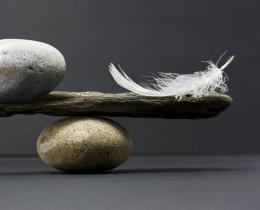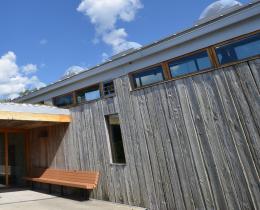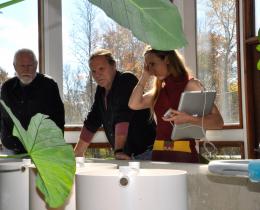NEW YORK—The Uber pulled up near the United Nations building and a weary teenager stepped out.
On a sun-splashed Friday in July, Alexandria Villaseñor (@AlexandriaV2005) was on three hours sleep, having spent the past week at planning meetings for the next major climate strike and then traveling to Washington, D.C., to lobby elected officials.
Villaseñor, 14, and her mother, Kristin Hogue (@ClimateKristin) had returned home at 3 a.m. on Friday, the day Villaseñor reserves for her climate strikes. Now it was 11 a.m. and in just a few short hours, she would catch a flight to Miami for a youth summit.
Protest sign in hand, she took her place on one of the metal benches near the UN entrance and reflected on her work.
Omega: What inspired you to do this?
Alexandria: I used to live in Southern California. I moved to New York City in August [2018]. I was visiting family back in California in November when the Paradise fire broke out. Paradise is only about an hour away from my hometown of Davis, California. So we got a lot of the smoke. Paradise quickly became the worst wildfire in California history. It rated a 350 [air quality index], which was the worst air quality in the world at one point. Since I have asthma, for my health and safety, my family sent me back to New York City early. I became upset when I learned that the fire had a connection to climate change in that climate change is fueling them. I started paying attention to things like COP24 and I saw [Swedish teenage activist] Greta Thunberg speak at COP24. And she really empowered me to strike. My first strike was December 14, 2018, at the United Nations. It was the last day of COP24.
Omega: What were the first days like?
Alexandria: It’s not as depressing as people might think it would be. When I first started my strike, the first couple of weeks I was alone. Sometimes it was raining and I’d be by myself. And it would be quite calming. It would just be downtime. So in the moment, it didn’t really do anything to dampen my spirits. I knew that even though I was alone, I was still going to be out there protesting. I think that was what was really important.
Omega: What role have your peers played in supporting your work?
Alexandria: I work with a lot of my peers who aren’t in my school, who are organizing and supporting activism. There is a good group of students with Earth Uprising who are the best, most hardworking people and students that I have ever met. When it comes to my classmates, they support me. But it’s been my job to educate them on the urgency of the problem because it takes a lot to go from the place where you compartmentalize the climate crisis to actually realizing its full extent. And that is what I am convincing my classmates of and what they are starting to realize.
Omega: Who are your heroes?
Alexandria: My shero is Greta Thunberg because she has inspired so many students around the world. The way she will stand up and talk to world leaders—and that she is almost my age—is really inspiring.
Omega: What has been the most satisfying part of your work so far?
Alexandria: I think the most satisfying part of my work so far was when New York City declared a climate emergency [on June 26, 2019]. We had been pushing for this since May 3, when we had a sit-in on the Brooklyn Bridge demanding that we have a New York City climate emergency.
Omega: What is it like to be the target of social media trolls and the subject of personal attacks?
Alexandria: When you are targeted by trolls—and all of us who are activists are targeted by a lot of mean climate deniers—I think it means that the youth are really threatening to them and their beliefs. When we are threatening what they think to the point where they will attack us, then I think we are really making change.
Omega: What advice would give to someone your age who wants to become a leader in their community?
Alexandria: Anyone can be an activist as long as they advocate for something they are passionate about. Being an activist could be talking to your community. It could be protesting. It could be bringing petitions. In the climate movement, not enough people are involved. So you could be someone who is looked up to because you would be one of the first in your community.
Omega: How has all this changed you?
Alexandria: I seem to have more confidence than I did a year ago. And I am living in New York City, which I think has made a big impact. Coming from California and moving to the big city, I think you do get more strength.
Omega: Has this changed your relationship with your mom?
Alexandria: First let me say what she is. My mom is the perfect example of an adult ally. She supports me. She protects me. And she advocates for me. Being in this together, I think we’ve learned to have more patience with each other than anything else.
Omega: What would you be doing if you weren’t doing this?
Alexandria: I think if I wasn’t doing this, I’d be sleeping.



